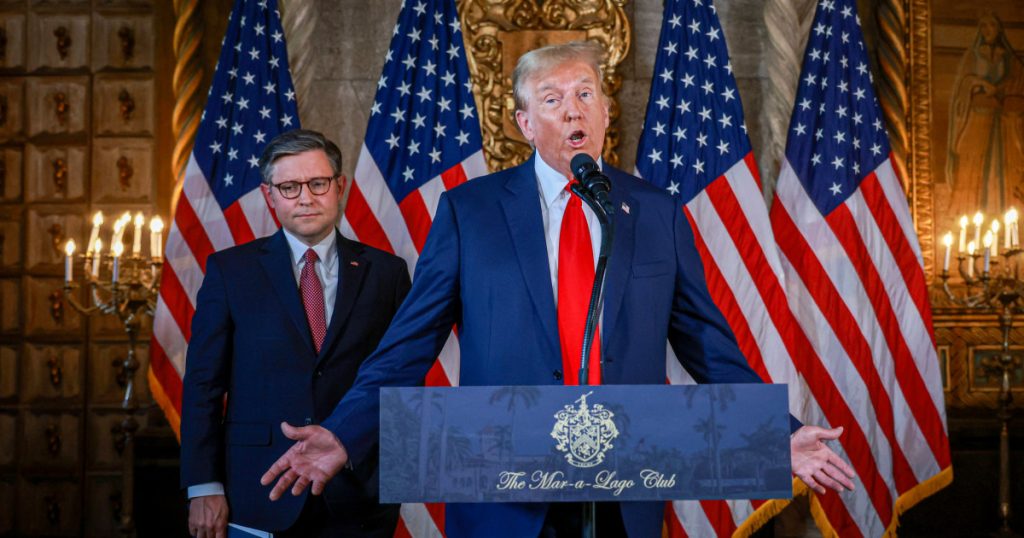The new Congress is set to begin, with House Republicans holding a slim majority and facing a challenging agenda in Donald Trump’s second term. House Speaker Mike Johnson faces a potential re-election challenge needing to retain at least one defection-free vote. With potential vacancies due to House members joining Trump’s administration, the majority could shrink further. Republicans will need to carefully manage their votes as even a single defection could be enough to derail legislation.
House Republicans will need to work closely with Democrats in order to fund the government by March 14 and prevent a shutdown. The past has shown the difficulty in finding enough votes without Democratic support. Johnson will need to navigate these challenges and sell any compromise package to his members. Republicans also hope to pass legislation on immigration, energy, and taxes, using the budget reconciliation process to bypass the Senate’s 60-vote rule. However, disagreements on the strategy and compromises required are already surfacing, making the passage of Trump’s agenda a complex task.
The issue of extending the debt ceiling presents another significant challenge for Republicans. With the U.S. poised to hit the debt ceiling, Congress will need to take action to prevent a default. Last month, Trump’s demand for Congress to address the debt ceiling separately was met with skepticism from both parties. Finding a solution to this issue will require delicate negotiations and potential compromises. Some Republicans are pushing for spending cuts alongside a debt limit hike, trying to appease conservative hard-liners, but the success of such a deal remains uncertain.
The Senate will also be busy in the new term, with a 53-47 majority and hearings scheduled for Trump’s Cabinet nominees. Republicans face a lengthy to-do list, including advancing legislation on core components of Trump’s agenda and managing the challenging task of extending the debt ceiling. These tasks require collaboration with Democrats and careful management of votes within the Republican caucus. As Trump’s second term begins, the new Congress will face significant tests and crucial decisions that will shape the future of the country.
The coming weeks will be critical for House Republicans as they navigate the challenges of a limited majority and various policy priorities. Finding common ground with Democrats on funding the government and extending the debt ceiling will be essential to prevent any disruptive shutdowns or defaults. Republicans will need to carefully manage internal disagreements and ensure near-unanimity on key issues to pass legislation. With a tenuous majority and important decisions on the horizon, the new Congress will need to work efficiently and effectively to address the pressing issues facing the country.
Overall, the new Congress will face a series of significant challenges in the early days of Trump’s second term. From funding the government to passing key legislation on immigration and taxes, House Republicans will need to navigate a complex political landscape. With a slim majority and potential defections, the path forward is uncertain. Collaboration with Democrats and careful negotiation will be crucial to achieving the goals of the new administration and addressing the pressing needs of the country.












